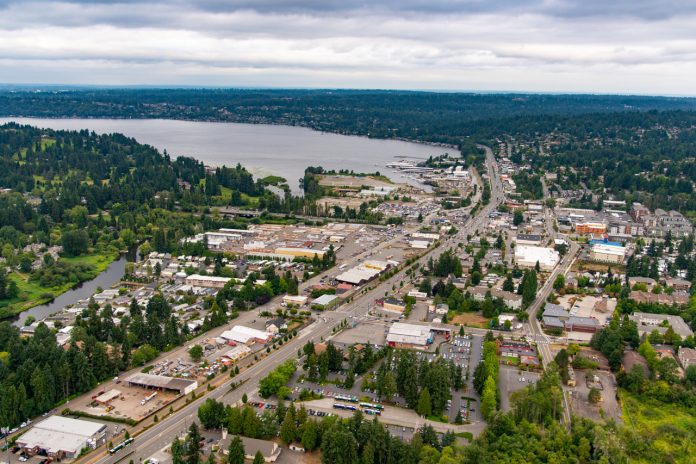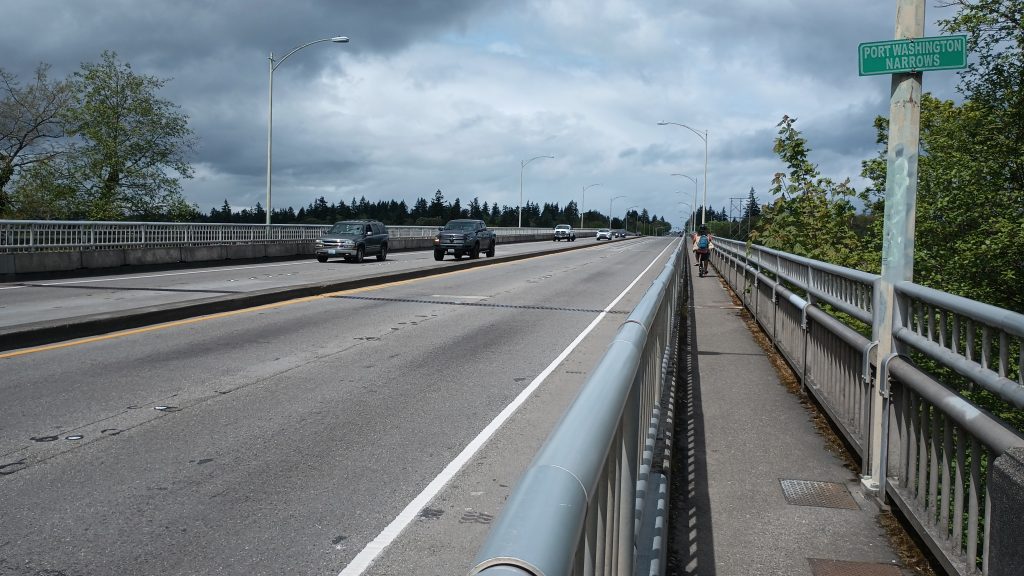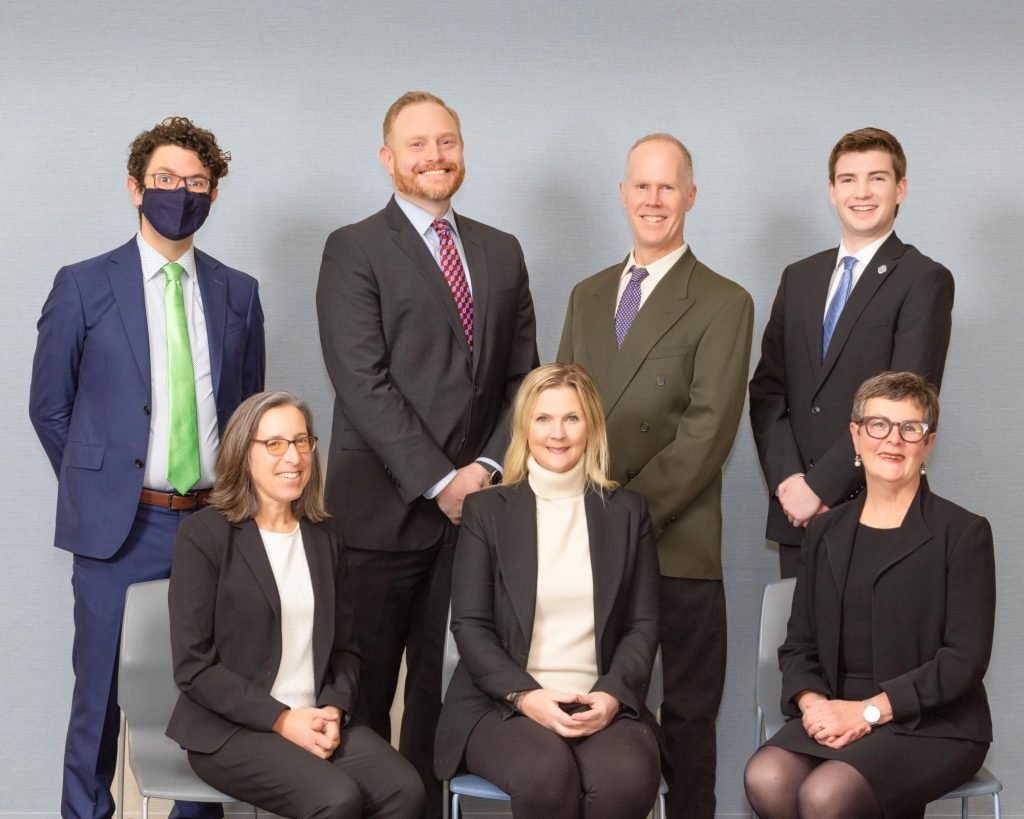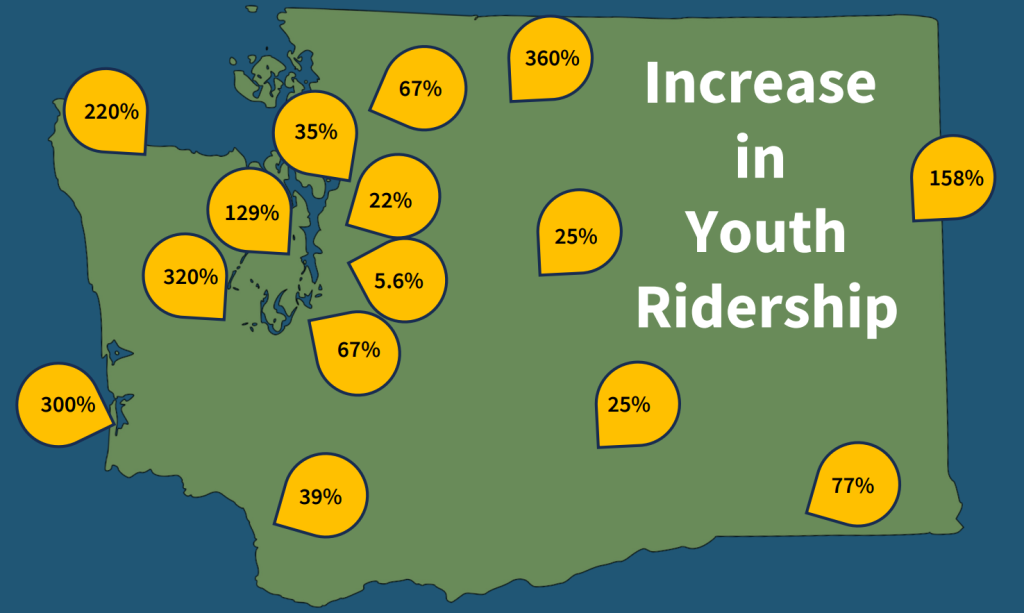
With the clock ticking to the November election, local governments around Puget Sound are starting to weigh in on a big issue that voters will face when they fill out their ballot. Over the past few weeks, the Kenmore, Burien, Shoreline, and Lake Forest Park City Councils have all approved resolutions opposing Initiative 2117, which would prohibit state government in Washington from creating any type of carbon tax credit trading program, and repeal the existing program created in 2021, via the Climate Commitment Act (CCA).
One of four citizen-led initiatives promoted by Redmond hedge fund manager Brian Heywood and Washington GOP state party chair Jim Walsh, I-2117 seeks to reverse one of the most ambitious climate laws in the US while blowing a major hole in Washington’s state-level budget at the same time.
All four votes were unanimous, with city governments pushing back on the initiative citing two major reasons: the fact that repealing the CCA would make the work of implementing their local climate action plans harder — slowing the urgent work to decrease greenhouse gas emissions statewide — and that stopping the flow of revenue from carbon auctions into state coffers would mean direct cuts to transportation projects and less revenue going forward. It’s this nexus with the work of local government that looks to have prompted the official stances, in contrast with the other three initiatives that will be on the ballot, including one that would weaken the state’s long-term care program and one that would repeal the state’s capital gains tax.
Other cities will likely follow by the time ballots arrive, but it’s less clear whether the region’s biggest cities like Seattle, Bellevue or Tacoma will weigh in on the issue, despite the direct impacts that I-2117’s passage would have on their residents.

Revenues from the CCA currently make up a substantial portion of the state transportation budget, and a recent analysis by the state’s Office of Financial Management found that if I-2117 were successful, the state would lose out on $3.8 billion in expected revenues from carbon auctions between 2025 and 2029. The legislature’s transportation spending plan for 2026 to 2029 assumes a baseline of $1 billion available for transportation projects — including ferry electrification, port electrification, transit funding, and active transportation facilities — that would no longer be available if the initiative passes. The legislature’s budget writers face other potential shortfalls in the coming years even with the CCA.
“The Climate Commitment Act is one of the most important pieces of legislation that we’ve seen at the state level in a while,” Kenmore Mayor Nigel Herbig said ahead of the council vote in his city on June 24. “I think it’s vitally important if we’re going to actually address climate at the state level, and at the same time, using those funds from our largest polluters and our largest greenhouse gas emitters, to then fund things that actually lower our reliance on fuels.”

The City of Shoreline has firsthand knowledge of the projects that the CCA funds, with $10 million for the city’s new bicycle and pedestrian bridge over I-5 at N 148th Street coming from carbon tax revenue. Paired with federal funding, the project officially started construction earlier this year and is set to open in 2026. Under I-2117, only future carbon auctions would be cancelled, so Shoreline would not have to give up the funding it has already received, but the Shoreline City Council opposed the initiative on the grounds that it would take the state backward.
“Not only will Washington residents benefit by the end result of this, which is to have a cleaner, healthier state, but there are lots of projects in here […] that really benefit the quality of life of the people who live in Shoreline,” Shoreline Mayor Chris Roberts said ahead of their council vote on August 5.
On top of city transportation projects, the repeal of the CCA would have a major impact on the public transit agencies that serve Washington’s cities as well. The 2022 Move Ahead Washington transportation package offered transit agencies brand new operating grants for service expansion in exchange for making transit fare-free for all kids under 18, an offer that every single agency statewide agreed to. Those programs immediately paid dividends when it comes to youth ridership, with increases ranging from 129% in Kitsap County to 360% in Okanogan County.

With the passage of I-2117, those Kids Ride Free programs would be set to go away unless the legislature found another funding source to prop up that grant program, a tall order given the fact that it was expected to allocate $1.45 billion over 16 years.
Recent polling by the Northwest Progressive Institute showed that support for all four initiatives is lagging, with a full 50% of respondents stating an intention to vote no on I-2117 and just 15% unsure. But the fight to repeal the second active cap-and-trade program in the US has so far largely escaped national media attention, despite the fact that it will have national implications from other cities eyeing the came programs. Much like the pause in implementing congestion pricing in New York City, other states would likely be wary of implementing cap-and-trade if Washington’s were to be repealed by the voters.
“I’m very proud to be a Washingtonian, for a state that would take on such a plan to have a cap-and-trade [system], to realize that there are things that we can do as citizens, to address what is really an existential problem for us, not just here in Washington but in the world. We see every day the impacts of what’s occurring: floods, droughts, hurricanes,” Lake Forest Park Councilmember Jon Lebo said on August 8. “I am proud that as a Washingtonian, our legislature took this action, and I would be very disappointed to see that our citizens would overturn this.”
Ryan Packer has been writing for The Urbanist since 2015, and currently reports full-time as Contributing Editor. Their beats are transportation, land use, public space, traffic safety, and obscure community meetings. Packer has also reported for other regional outlets including BikePortland, Seattle Met, and PubliCola. They live in the Capitol Hill neighborhood of Seattle.

